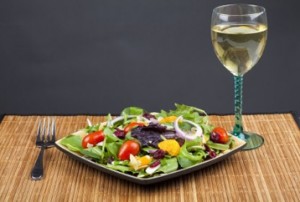 Several years ago I discovered I had a gluten sensitivity. When a doctor presented me with a long list of foods and beverages to avoid, I panicked until I saw that wine wasn’t on it. Bread, pasta, cookies…okay, I’ll give it all up. I get wine.
Several years ago I discovered I had a gluten sensitivity. When a doctor presented me with a long list of foods and beverages to avoid, I panicked until I saw that wine wasn’t on it. Bread, pasta, cookies…okay, I’ll give it all up. I get wine.
A few years later when I was working for a barrel broker and visiting cooperages, I learned that coopers sometimes put a small amount of wheat paste in the croze (a groove carved into the staves to fit the heads) to seal the barrel. Not all cooperages use a wheat paste, but some do.
Since I knew that wine was on the “safe” list for gluten free, this never concerned me. But during the two years I was selling barrels this subject came up a few times. One winery told me it doesn’t claim its wine is gluten free because of the possible contamination from barrels.
For people with Celiac Disease, a genetic disorder in which the consumption of gluten causes damage to the small intestine and prevents the absorption of nutrients (sometimes with the immediate effect of getting violently sick), this could be alarming.
I’ve heard numerous accounts on online forums of sensitive celiacs drinking wine regularly and not getting sick. I also found the following facts to be reassuring:
1) A barrel holds 225 liters (60 gallons) of wine. Cooperages use only a trace amount of wheat paste. If it all dissolved into the contents of the barrel, it would not be an effective seal.
2) Before a barrel leaves the cooperage, it is filled part way with water and rolled to test for leaks. This rinses the barrel some too.
3) Most winemakers fill barrels with water (often hot) before filling them with wine so the wood expands and seals in the contents.
4) Many wines are fined or filtered before being bottled. This removes solid particles from the wine.
But then I learned that some wineries use a gluten substance to fine their wine, although this is rare. This can potentially leave a greater amount of gluten in the wine than wheat paste from a barrel. But the gluten is being used to remove particles from the wine. It binds to the solids and drops out because it’s heavier than the wine. Studies have shown that after fining, the remaining gluten levels are below the 20ppm threshold required for gluten-free status.
However, for the person who is super sensitive to gluten and wants to be absolutely certain, drink wines that are oak free and ask wineries if they use gluten for fining.
For most people, though, it should be enough to know that the major authorities on Celiac Disease continue to list wine as a gluten-free product.
